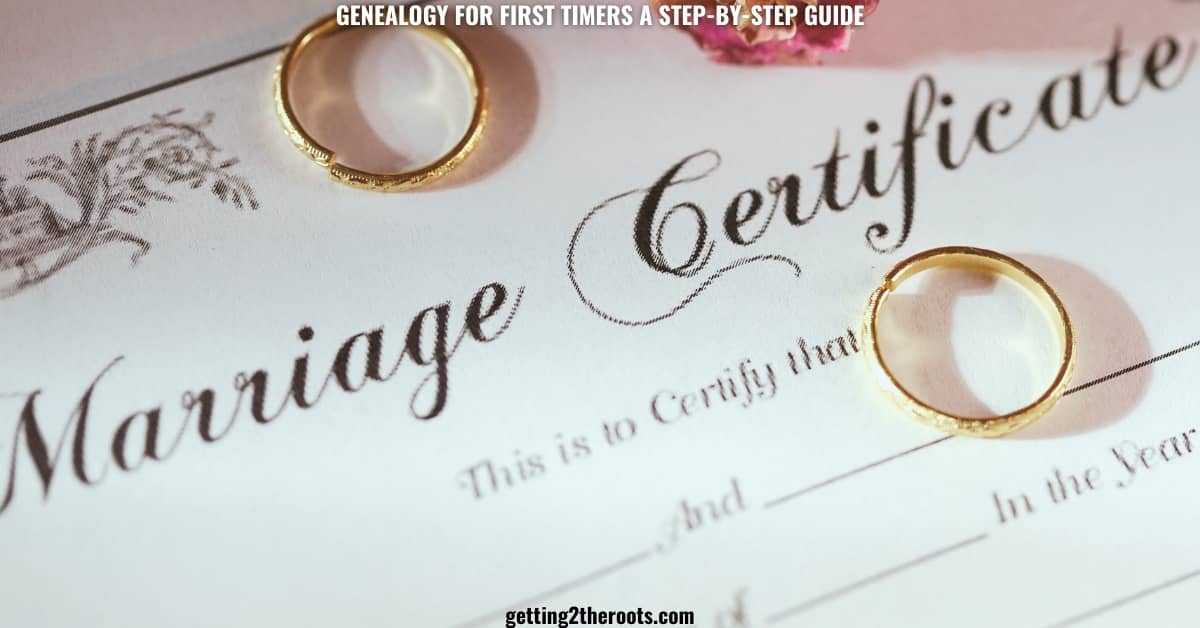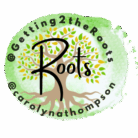Genealogy for first timers can be an exciting yet overwhelming journey. It’s like standing at the base of a grand staircase, ready to ascend into the past to uncover the rich history of your family.
This guide will help you take those first steps with confidence, making your exploration into genealogy both rewarding and insightful.
Why Genealogy for First Timers is Important
Genealogy for first timers is not just about tracing your lineage; it’s about understanding your family’s place in history. Knowing where you come from can help you understand who you are today.
Whether you’re looking to connect with distant relatives, discover the origins of your family name, or simply preserve your family’s legacy for future generations, genealogy offers a window into your past that can be deeply fulfilling.

Getting Started with Genealogy for First Timers
Starting your genealogy journey can feel daunting, but breaking it down into manageable steps makes it easier. Begin with the basics—your own information.
Documenting details like your full name, birth date, and significant life events is the first step. This foundational information will serve as the starting point for your research.
Genealogy for First Timers: Documenting Personal Information
The first step in genealogy for first timers is to document your personal information. Start with the following:
- Full Name: Include maiden names for married women.
- Birth Date and Place: Record the city, county, state, and country, if known.
- Marriage Date and Place: Note this for all marriages, if applicable.
- Significant Life Events: Include milestones like marriages, career changes, or relocations.
This personal information forms the base of your family tree. As you climb the staircase of your ancestry, you’ll add more branches, starting with your parents.

Tracing Your Parents’ History
In genealogy for first timers, your parents are the next critical link. Gather as much information as possible about them.
This includes their full names, birth and marriage details, and any other significant life events. Don’t forget to record any stories or anecdotes they might share—these personal touches bring your family history to life.

Genealogy for First Timers: Gathering Details about Your Parents
When researching your parents’ history, be sure to collect the following information:
- Full Names: Include maiden names.
- Birth Date and Place: City, county, state, and country.
- Marriage Date and Place: For all marriages.
- Death Date and Place: If applicable.
- Burial Date and Place: If known.
Additionally, gather extra details, such as:
- Parents’ Names: Including the mother’s maiden name.
- Spouses’ Names: For each marriage.
- Children’s Names and Birthdates: To connect generations.
- Occupations and Residences: These can provide context about their lives.
- Military Service and Education: These details can be invaluable in your research.
These pieces of information will help you build a more complete picture of your parents’ lives, providing insight into your family’s past.

Exploring Your Grandparents’ History
- Moving up the staircase of your family tree, your grandparents is the next step.
- They represent a new generation, and each grandparent adds a unique branch to your tree.
- Documenting their lives will help you further your understanding of your family’s history.
Genealogy for First Timers: Documenting Grandparents’ Lives
For each of your four grandparents, collect the following information:
- Full Names: Including maiden names.
- Birth Date and Place: Record these details.
- Marriage Date and Place: For all marriages.
- Death Date and Place: If applicable.
- Burial Date and Place: If known.
Don’t forget to document their parents’ names, occupations, and any stories or traditions that have been passed down. This will help you understand the broader context of their lives.

Connecting with Living Relatives
- As you continue your genealogy journey, connecting with living relatives can be incredibly valuable.
- They are the keepers of family stories, photos, and documents that might not be recorded elsewhere.
- Speak to the oldest members of your family first—they often hold the most knowledge about your ancestors.
Genealogy for First Timers: Interviewing Family Members
When interviewing family members, ask open-ended questions to encourage them to share stories. Some examples include:
- What was your childhood like?
- Can you tell me about your parents and grandparents?
- Are there any family traditions or stories that have been passed down?
These conversations can reveal details that are not recorded in official documents, adding depth and richness to your family history.
Delving into Historical Records
Once you’ve gathered information from family members, it’s time to dive into historical records. Genealogy for first timers often begins with census records.
The 1950 Census is a good starting point, as it provides detailed information about individuals and families.
From there, work your way back through earlier censuses, like the 1870 Census, which is especially important for tracing African American ancestry.
Genealogy for First Timers: Using Census Records
Census records are a goldmine of information. They can provide details, such as:
- Names and Ages of Family Members
- Occupations
- Residences
- Birthplaces
When reviewing census records, don’t just focus on your direct ancestors. Expand your search to include siblings, aunts, uncles, and cousins. This broader search can help you fill in gaps and create a more complete family tree.
Using Online Resources for Genealogy Research
Today, there are countless online resources available to help you in your genealogy research. Websites like FamilySearch.org offer free access to a vast array of historical records, making it easier than ever to trace your ancestry.
Genealogy for First Timers: Exploring Online Genealogy Tools
When using online resources, keep the following tips in mind:
- Start with Free Resources: FamilySearch.org is an excellent starting point.
- Use Search Filters: Narrow down search results by location, date range, and type of record.
- Explore Family Trees: Many websites allow you to explore existing family trees that might connect to yours.
These tools can help you uncover new information and connect with other researchers who might be studying the same family lines.

Overcoming Challenges in African American Genealogy
For African Americans, tracing lineage beyond the 1870 Census can be challenging due to the lack of records during the slavery era. However, there are advanced techniques that can help overcome these obstacles.
Genealogy for First Timers: Advanced Techniques for African American Research
Some of the most effective strategies for African American genealogy include:
- DNA Testing: Can help identify distant relatives and connect you with others researching similar lines.
- Military and Educational Records: These can provide valuable information about your ancestors’ lives.
- Freedmen’s Bureau and Church Records: These are crucial resources for African American genealogy.
By using these advanced techniques, you can uncover details about your ancestors’ lives that might otherwise be lost to history.

Conclusion: Genealogy for First Timers is a Journey Worth Taking
Genealogy for first timers is a journey of discovery. It’s about uncovering the stories that have shaped your family and understanding how those stories influence who you are today.
Whether you’re just starting out or have already begun tracing your roots, this guide provides the tools and knowledge you need to continue your exploration with confidence.
Dive Deeper into Your Family History!
Ready to take your Genealogy journey to the next level?
Getting2theRoots.com has a wealth of resources to help you uncover even more about your ancestors. Whether you’re just starting out or a seasoned researcher, we have something for everyone!
Explore Our Genealogy Resources:
- Genealogy Research: Dive into our comprehensive collection of articles and guides to help you master the fundamentals of genealogy research. Find tips on record keeping, navigating historical archives, and more: Link to Genealogy Research page
- Genealogy DNA Testing and Insights: Unlock the power of DNA testing to unlock hidden stories about your heritage. Learn how to interpret your results, find lost relatives, and gain valuable insights into your family history: Link to Genealogy DNA Testing and Insights page
Expand Your Knowledge with Videos:
- Genealogy Basics & How-To: Our beginner-friendly video playlist walks you through the essential steps of genealogy research. Learn valuable tips and strategies to kickstart your ancestry exploration: Link to Genealogy Basics & How-To playlist
- Advanced Genealogy & DNA: Ready to delve deeper? This playlist explores advanced genealogy techniques and DNA analysis to help you crack even the most challenging research problems: Link to Advanced Genealogy & DNA playlist
With a combination of informative articles, insightful videos, and expert guidance, Getting2theRoots.com is your one-stop shop for all things genealogy!
FAQ
- What is the first step in genealogy for first timers?
- The first step is to document your own personal information, including your full name, birth date, and significant life events.
- How can I gather information about my ancestors?
- Start by interviewing living relatives, then move on to historical records like census documents and birth certificates.
- What resources are available for African American genealogy?
- In addition to census records, African Americans can use DNA testing, Freedmen’s Bureau records, and church records to trace their ancestry.
- How do online genealogy tools work?
- Online tools like FamilySearch.org allow you to search historical records, explore existing family trees, and connect with other researchers.
- Why is genealogy important?
- Genealogy helps you understand your family’s place in history and can provide a sense of identity and connection to your roots.








